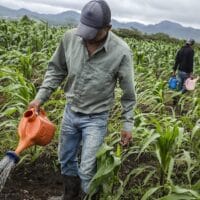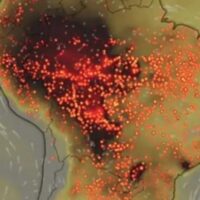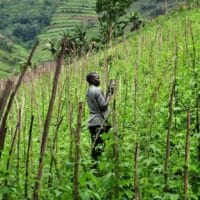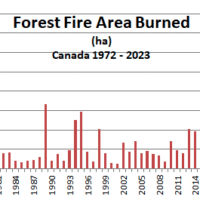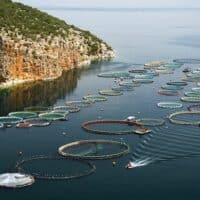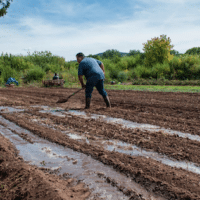-
Conservation Innovations: How sustained resistance is saving one of the Earth’s most critical rainforests from corporate greed
As profit-driven exploitation imperils Indonesia’s Leuser Ecosystem, some unique conservation strategies are working to save it.
-
Nicaragua and China break ground on landmark Solar project to power water access and energy sovereignty
Nicaragua, with Chinese financing, launches its largest solar plant to date—powering water systems, cutting energy costs, and deepening South-South cooperation on infrastructure for social good.
-
Analysis: Clean energy just put China’s CO2 emissions into reverse for first time
For the first time, the growth in China’s clean power generation has caused the nation’s carbon dioxide (CO2) emissions to fall despite rapid power demand growth.
-
The right to water: A new front in Trump’s aggression on Mexico
For the first time in 81 years, the U.S. denied Mexico’s request to supply water from the Colorado River to Tijuana.
-
Cuts to U.S. weather and climate research could put public safety at risk
Firings and budget cuts could slow emergency disaster response and weaken resilience efforts.
-
78 miners found starved and dehydrated to death in South African police operation against unlicensed mining
The bodies of 78 dead miners have been retrieved from a shaft in Buffelsfontein mine’s Shaft 11 after being trapped underground since last August by the South African police who cut-off food and water supply in its attempt to crackdown on unlicensed mining.
-
Oligarch farmers and the fires in Los Angeles
Beverly Hills billionaires, fires, climate change, and the ecocidal terraforming system that underpins the California way of life.
-
Mali’s government issues arrest warrant for Canadian mining company CEO
On December 2, 2024, Mali’s popular anti-imperialist government issued an arrest warrant for Canadian mining company Barrick Gold’s CEO, Mark Bristow, a South African national who fought for the apartheid army in the 1970s.
-
Bayer’s “backward” claim: A bid to reap control of Indian agriculture
Bayer’s vision for agriculture in India includes prioritising and fast-tracking approvals for its new products, introducing genetically modified (GM) food crops, addressing labour shortages (for weeding) by increasingly focusing on herbicides and developing herbicides for specific crops like paddy, wheat, sugarcane and maize.
-
Vulture Fund Elliott chosen as winner of CITGO court-mandated auction
The $7.3 billion offer from the investment fund falls significantly short of the Venezuelan refiner’s valuation.
-
South America faces one of the worst waves of wildfires in recent years
Most of the fires have been caused by deliberate burning of lands and improper disposal of highly polluting waste.
-
Burkina Faso nationalizes UK goldmines
Burkina Faso will nationalize two gold mines at a cost of about US$80 million.
-
Game meat for hungry communities in Southern Africa
As hunger threatens millions in southern Africa, some of the governments in these wildlife-rich countries have started harvesting game such as elephants, hippopotamuses, buffaloes, zebras, and others to feed their citizens.
-
Corporate or community-led? Africa’s agricultural future at a crossroads
The post-Malabo process to determine the next decade of agricultural policy has so far been characterised by outside influence and exclusivity.
-
Decolonisation, dependency and disengagement—the challenge of Ireland’s degrowth transition
Advancing degrowth in Ireland requires an understanding of, and a reckoning with, the economic legacy of its colonised past, CUSP researcher Seán Fearon writes. A post-colonial economy within planetary boundaries must break with relationships of dependency and structures of unsustainability.
-
The profile of environmental collapse–forest fires tell the story
Human history is rarely dull but we are living through a period in which pivotal change is taking place.
-
The world is farming more seafood than it catches. Is that a good thing?
Both aquaculture and fisheries have environmental and climate impacts—and they overlap more than you’d think.
-
Two years to save the world
The following is the transcript of a speech delivered by UN Climate Change Executive Secretary Simon Stiell on 10 April 2024 at Chatham House in London, England.
-
A lone Dayak community’s last stand against palm oil
The Dayak peoples of Borneo have been fiercely resisting the encroachment of palm oil plantations on their ancestral lands for many decades.
-
A closer look at America’s water crisis
New Mexico’s unprotected waters demonstrate how pollution, drought, and the climate crisis converge to harm communities.




